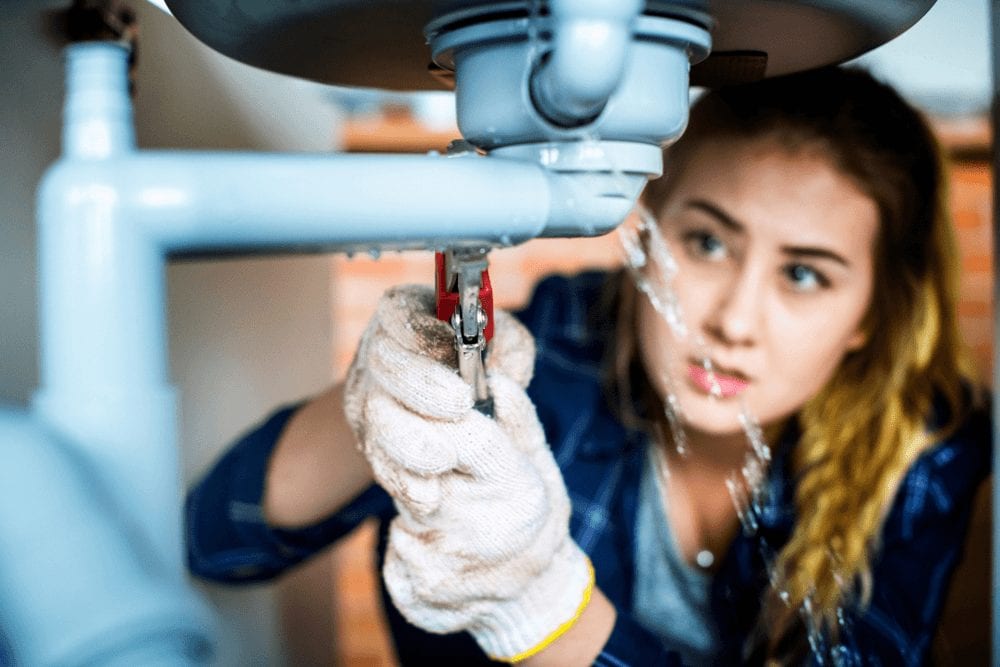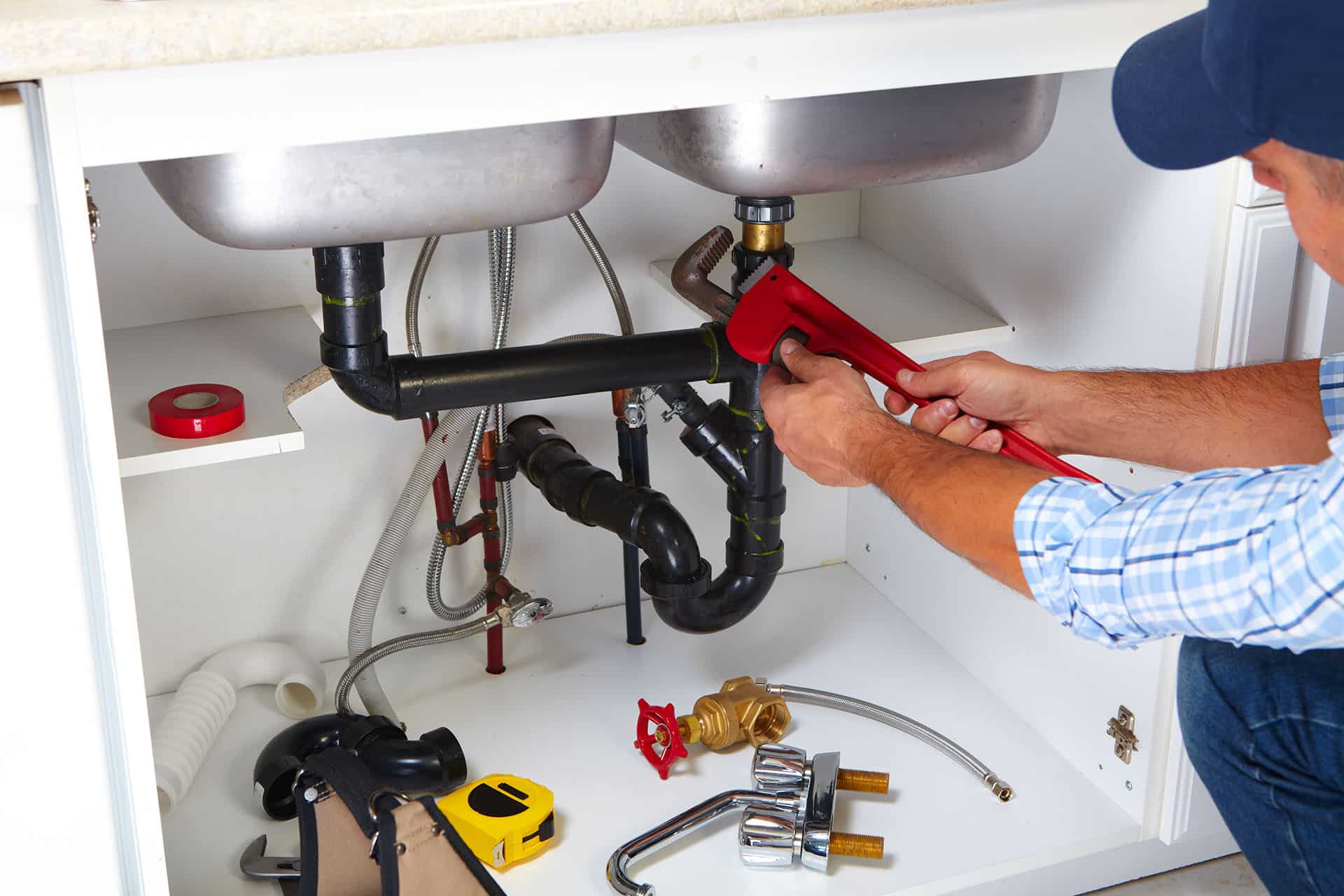6 Habits You’re Damaging The Plumbing Systems
6 Habits You’re Damaging The Plumbing Systems
Blog Article
In this article in the next paragraph you will find a bunch of outstanding news involving Don’t Let an Earthquake Damage Your Plumbing.

The key to durable devices, unsurprisingly, is proper maintenance. There's no set regulation that can guarantee your plumbing home appliances a long wear, but you can avoid unnecessary damages and also repair services by preventing bad plumbing habits.
You should stop doing these 6 points else you'll maintain calling your plumber over for minor faults.
Flushing whatever
Yes, your bathroom drain leads to the sewage systems, but that doesn't indicate you ought to dispose just anything away. Numerous 'flushable' products are really wonderful blockage starters, for instance dental floss. Asides maintaining obvious non-flushable materials like cords and plastics out of your bathroom, you should also prevent flushing cotton swab, menstrual products, wipes, daipers as well as prophylactics down the commode drainpipe.
Pouring grease in the sink
We understand properly disposing of oil after a hearty meal is a pain. Yet simply pouring it down the drain can do long-lasting damage to your pipelines. "The fat and also grease can block your drainpipe severely adequate to compel you to call a plumber," explains Dawson. "Plumbing works best when it's well taken care of-- not abused with grease."
Using too much drainpipe cleaner
Utilizing a drain cleaner more than one or two times a month is a sign that something severe is taking place within your pipes. Currently, rather than dealing with the primary issue, you go for a quick fix; a carbonated drain cleaner. Rightfully, a drain cleaner will care for the obstruction, however at what price?
The chemicals in a drain cleanser can speed up the corrosion of your pipelines. Add that to whatever underlying issue is causing the obstruction and you might have to a serious issue on your hands.
If you experience too many blockages, call your emergency plumber as opposed to utilizing a drainpipe cleaner.
Not washing meals prior to filling them right into the dishwashing machine
it's called a dishwasher, however tossing in dishes, pots, and pans covered in huge food fragments can actually cause some severe damages to the home appliance, causing lasting issues down the line. "Home owners might have to get their dishwasher fixed more frequently if they don't wash their recipes before loading, or at the very least get rid of bigger food pieces," explains Audrey Monell, proprietor of Forrest Anderson Plumbing as well as Air Conditioner in Glendale, Arizona. "Food that obtains stuck on meals triggers the dishwasher to function harder, which can wear down components faster, resulting in troubles."
DIYing whatever
With plumbing, a stitch in time really does conserve nine. You can avoid a fullblown plumbing emergency by calling your plumber at the correct time.
You may have found out a few plumbing hacks from your papa, but you should know where to draw the line and also call an expert. As an example, you might be able to repair a blockage yourself, however you should not attempt to transform a pipe. You could mismatch pipes or overtighten a bolt, causing more injury and also damages than you thought. Calling a plumber is a risk-free as well as affordable choice.
Not changing your dish washer tubes
One easy way to guarantee that you use your dishwasher for several years is to change the hose pipe at least as soon as in five years. This also makes an application for cleaning device hose pipes.
Gradually, food bits, soap as well as grease can develop clogs within your pipelines. Changing them in a timely manner will certainly prevent any type of presure accumulate that can damage the interior operations of your dishwasher or cleaning machine.
A strengthened steel entwined tube does a fantastic task of lengthening your equipment's usage time.
No winter precautions
Extreme weather conditions are bad for your pipes, especially if they're constructed from steel. You need to shield your subjected pipes, and your water tank, even if you have a water heater. You should additionally switch off your garden hose shutoff as well as any other external water networks. These networks are outlets for cool; you pipes can begin to ice up from outside if you do not.
How Hard Water Damages Your Plumbing and Appliances
Hard water is no stranger to most households across America. This silent invader affects 85% of homes in the United States every day, wreaking havoc on pipes, plumbing fixtures, and water-using appliances.
Should you become a victim of hard water, you must understand exactly what it is and how it affects your plumbing and appliances. This will help you determine the correct measures to put in place to fix or prevent any problems that may arise.
First off, what exactly is “hard” water?
In short, “hard water” is used to describe water that contains relatively high amounts of dissolved minerals, primarily calcium and magnesium, and a host of trace metals. When rainwater falls from the sky (usually in a pure form), it absorbs the hardness minerals from rocks and soil, which changes it from soft to hard water.
What about my plumbing and appliances?
Mineral deposits from hard water can cause buildup on tubs, shower, sinks, faucets. But that’s only a small scratch of the surface. Those minerals can gradually build up inside pipes, fixtures, water heaters, washing machines, and dishwashers. Once they accumulate in those areas, they can clog pipes and create major problems throughout your plumbing system, from reduced water flow to increased pressure on pipes and fixtures.
This limescale buildup might affect some appliances, causing them to operate less efficiently and wear down faster. And the result? Higher energy bills, more (costly) plumbing replacements and repairs, and damaged appliances.
Keep in mind that certain types of plumbing are more susceptible to clogging than others. Copper, PVC, and PEX pipes are more resistant to hard water buildup and corrosion, but they can still get clogged or completely blocked by scale deposits.
How do I know if my water is hard?
White limescale buildup on plumbing fixtures (or any of the other signs mentioned above) is usually a good sign that your water is hard. If you suspect that you have hard water, you can simply shake up a small amount of dish soap and water in a closed container. If the mixture doesn’t create a lot of suds, you probably have hard water.
The most precise method, however, is to test your water with a DIY test kit (sold online or at local home centers or hardware stores) or send a water sample from your tap to a local lab to be tested. Be sure that you understand the nature of the test, the water condition being measured, and the significance of the test results.
Another way to obtain an estimate of water hardness is to check your annual water quality report to see if your water provider has reported any instance(s) of water hardness in your water supply.
https://www.springwellwater.com/how-hard-water-damages-your-plumbing-and-appliances/

As a passionate reader on Can Hard Water Ruin Your Appliances?, I assumed sharing that piece was worth the trouble. If you appreciated our blog posting please make sure you remember to pass it around. Thanks so much for your time invested reading it.
Services Report this page